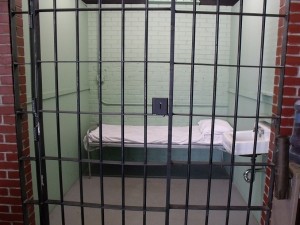John Hinckley, the man who shot President Reagan, was recently granted a provisional release from Washington’s St. Elizabeth Hospital, where he’d been committed since 1982. He was hospitalized after having been found Not Guilty by Reason of Insanity. [NG RI] This “convalescent leave” was granted because he is no longer viewed as a threat. He is under severe restrictions and most remain in psychiatric treatment in order to remain free.
RI] This “convalescent leave” was granted because he is no longer viewed as a threat. He is under severe restrictions and most remain in psychiatric treatment in order to remain free.
As a forensic psychiatrist, I’ve written about this topic in both my fiction and non-fiction books. A question I’m asked frequently is, “How can someone who has committed a murder be found Not Guilty by Reason of Insanity.” Although this plea is rarely used, it is often hyped in the media.
NGRI cases make headlines either because the crimes committed were against famous people or were heinous crimes such as the murders committed by James Holmes, the Aurora, Colorado shooter, who snuck into the midnight screening of The Dark Night Rises and shot innocent people.
Less than one percent of criminal defenses involve NGRI pleas, and of that number, very few are successful. So the actual number of defendants who are found to be “not guilty” because of insanity, is very, very small.
The heart of the NGRI defense involves the concept that the person committing the crime lacked the capacity to differentiate right from wrong by virtue of brain damage, mental retardation, or a mental disorder causing an inability to act within the law’s requirements at the time the crime was committed.
Perhaps the biggest misconception about NGRI pleas is the belief that if found Not Guilty by Reason of Insanity, the defendant “got away with murder.”
Not true.
A defendant found NGRI is remanded to a state mental hospital indefinitely. The hospital stay usually exceeds the time which would have been served had the defendant been found guilty and sent to prison!
The acquitee (the term applied to someone deemed NGRI) undergoes treatment in a locked psychiatric facility under the aegis of the state’s Department of Corrections.
Once each year, a review board convenes to decide if the acquitee has been “restored to sanity.” The board is comprised of psychiatrists, psychologists, and other mental health professionals. Almost always, the board recommends continued confinement with medication.
“Restoration of sanity” is rarely achieved.
In fact, the average stay in a locked mental institution for insanity acquitees is thirty-five years, whereas the prison term for these same crimes would be twenty years.
Had John Hinckley been convicted of the crimes he committed, he would have long ago been released from prison.
A successful NGRI plea doesn’t mean the defendant got away with a thing. In fact, he often pays a higher price for the crime committed.





Leave a Reply
You must be logged in to post a comment.